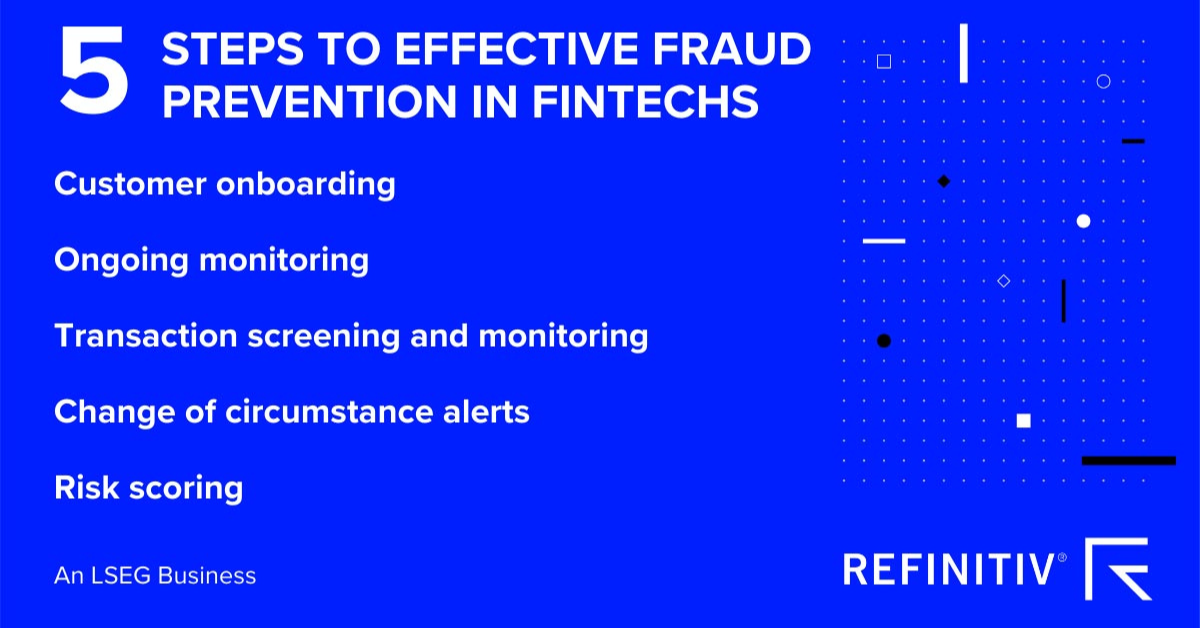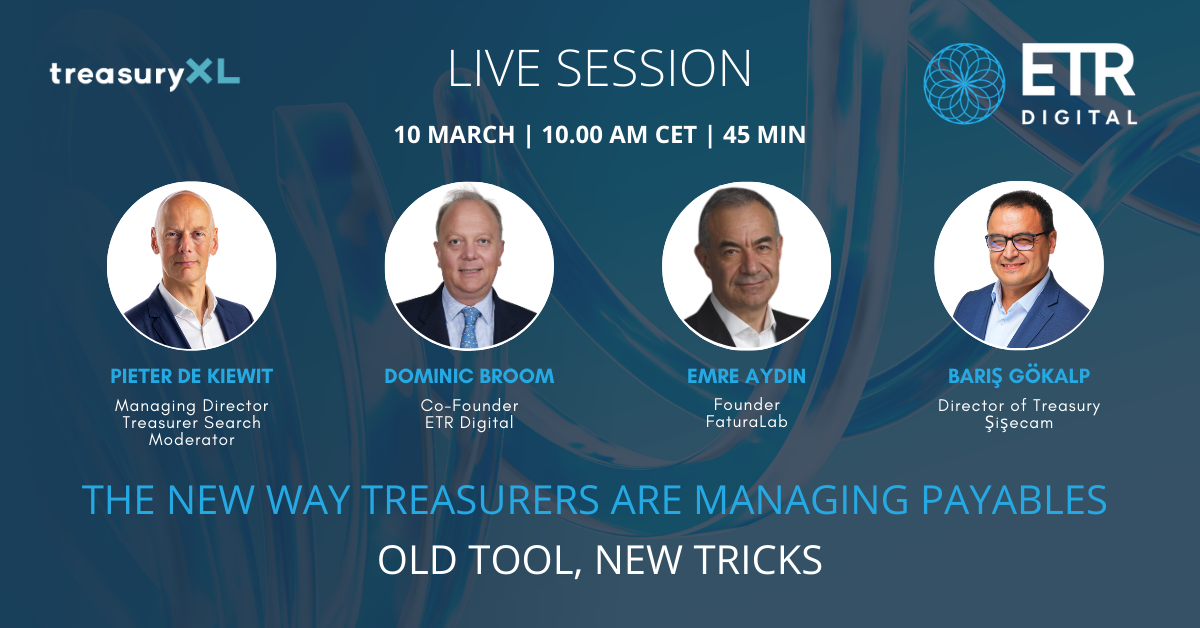5 steps to effective fraud prevention in fintech
14-07-2022 | treasuryXL | Refinitiv | LinkedIn |
A recent Refinitiv expert talk looks at the digital banking and fintech arena, unpacking the compliance challenges that dominate the sector and offering advice for a best-practice response.

- Fintechs are transforming the financial world by leveraging trusted data and leading-edge technology. Online criminals are exploiting the technology to further a range of illicit activities, from money laundering to identity theft, fraud and more.
- Fintechs must implement anti-money laundering (AML) and know your customer (KYC) compliance processes, but not compromise the customer experiences.
- Explore five key focus areas to consider when building an effective AML compliance function for a fintech including payment processors and crypto exchanges.
For more data-driven insights in your Inbox, subscribe to the Refinitiv Perspectives weekly newsletter.
Fintechs and fraud
A dynamic and evolving fintech industry continues to transform the financial services sector.
From digital banks, payment processors and crypto exchanges to insurers, lenders and wealth managers, these digitally native firms are transforming the financial world by leveraging trusted data and leading-edge technology to deliver more with less.
At the same time, sophisticated online criminals are exploiting the same technology to further a range of illicit activities, from money laundering to identity theft, fraud and more.
Unsurprisingly, regulators across the globe are focussing their attention on the sector, and compliance obligations for fintechs are growing.
Given this increased scrutiny and the fact that the consequences of non-compliance can be severe, fintechs simply cannot risk not meeting their AML obligations – but unfortunately, compliance is not always as straightforward as it may appear.
On the one hand, these firms must implement robust AML and KYC compliance processes, but on the other they must not compromise the quick, seamless customer experiences on which their businesses are founded.
An urgent need therefore exists for fintechs to find the right balance between ensuring effective compliance and fraud prevention and doing so in a seamless and customer-friendly manner.
Download the full expert talk: How digital banks can turn AML/KYC challenges into opportunities
Taking steps to effective AML compliance
Against this backdrop, how can fintechs best develop effective AML compliance frameworks?
The first crucial requirement is ensuring access to robust, trusted data and technology, both of which can deliver immediate benefits – including help to mitigate fraud and other financial crime risk, and improving client experiences.
The benefits of embracing technology and moving to digital processes do not end there, either.
Automation boosts efficiency, saves time, lowers costs and frees up time for compliance professionals to focus on higher value-added areas of the business. It also reduces manual keying errors, leading to better compliance.
Here are five key focus areas to consider when building an effective AML compliance function for a fintech including payment processors and crypto exchanges:
1. Customer onboarding
The accelerating transition away from manual onboarding processes and towards digital equivalents not only delivers the range of benefits outlined above, but also offers a golden opportunity for fintechs to establish seamless, positive customer experiences right from the get-go.
A holistic digital onboarding system efficiently screens customers against smart screening datasets, verifies customer information against trusted data sources and authenticates customer documents to ensure that they are not fraudulent. However, it also needs to meet other requirements.
Our checklist for best-practice digital onboarding includes:
- Are “liveness” and facial matching checks being conducted?
- Is there screening against trusted, complete data?
- Are adverse media checks being completed?
- Does the solution generate a transparent risk score for each customer?
- Are checks being completed in real time?
- Is data available in machine-readable format for backend systems to consume?
2. Ongoing monitoring
While initial onboarding is a crucial part in the equation, ongoing monitoring is also essential because risk changes over time and risk-based assessments of ongoing relationships must be kept relevant and up to date.
3. Transaction screening and monitoring
While screening customers on an ongoing basis (based on their risk levels) is paramount, one must also screen and monitor all customer transactions/payments for red flags that could indicate a potential illicit activity.
For example, an unexpected behaviour or an anomaly in a customer bank account may suggest that an account has been taken over or is acting as a money mule etc, and this would warrant further investigation.
4. Change of circumstance alerts
Alerts form an important part of a robust compliance framework, and can be set so that changes to specific data points (for example, an address change) trigger additional KYC processes based on pre-defined risk parameters.
5. Risk scoring
Building an accurate customer risk score means considering a range of factors that together deliver a meaningful score which can be tagged against a customer.
Risk scoring needs to be dynamic and take account of changing circumstances to ensure that individual customers are offered the right products and services based on their up-to-date score.
Partnering for success
Refinitiv’s extensive screening and digital onboarding capabilities can offer immediate benefits to fintechs struggling to keep abreast of growing AML and KYC obligations.
Our digital onboarding platform leverages the power of advanced API technology to offer ease of use, flexibility and cost-effectiveness.

Refinitiv’s Qual-ID digital ID verification and document proofing solution, combined with our industry-leading World-Check Risk Intelligence screening database, delivers a complete onboarding solution.
World-Check’s trusted, reliable risk intelligence data is researched and collated by hundreds of specialist researchers and analysts across the globe.
As the dynamic fintech landscape continues to grow and evolve, new risk and compliance challenges are certain to emerge with evolving regulations, but with the right data, tools and technology, our holistic approach can help you meet these challenges, mitigate changing risk and remain compliant.
Download the full expert talk: How digital banks can turn AML/KYC challenges into opportunities














